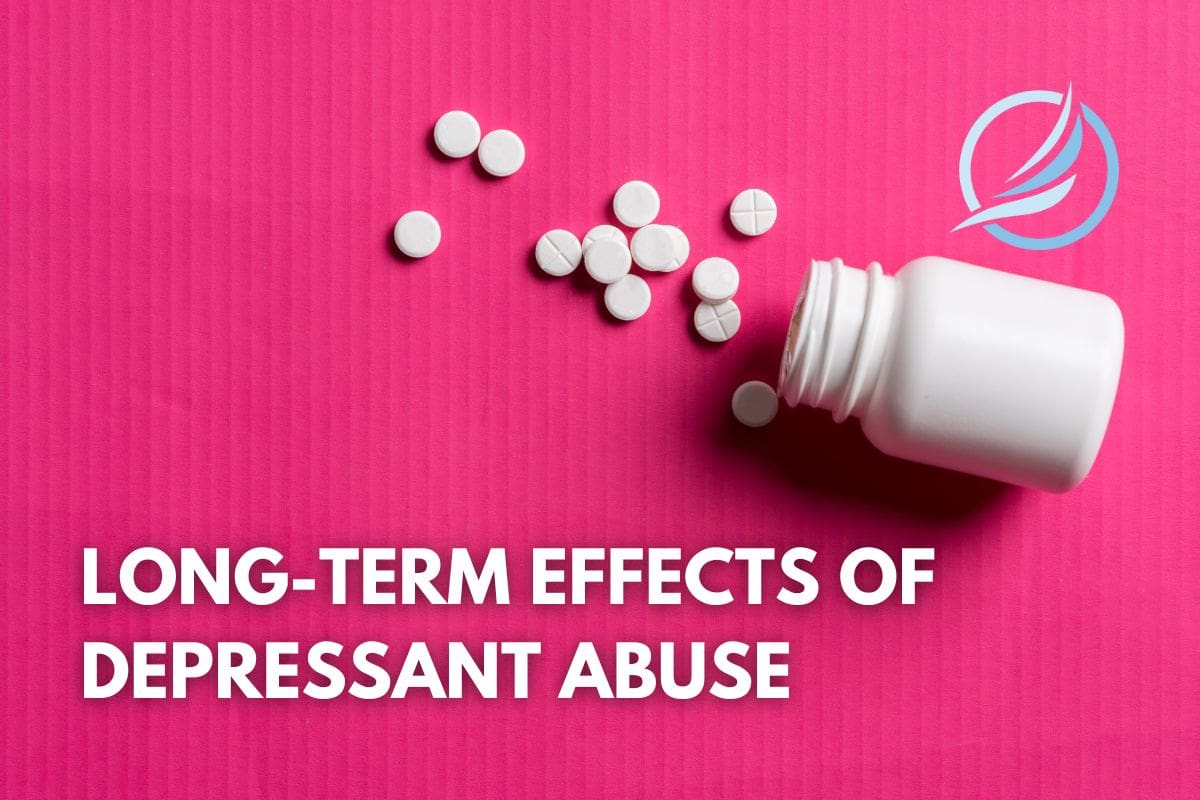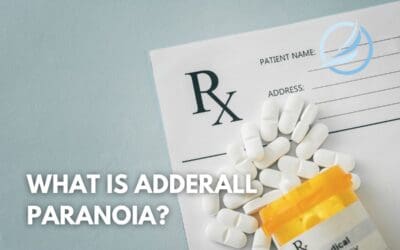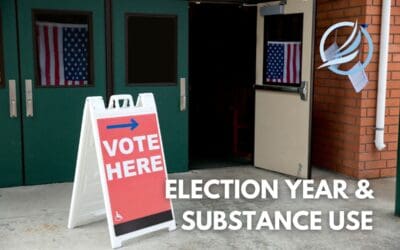Depressants are a type of drug that includes benzodiazepines, barbiturates, and the so-called “Z-drugs.” They calm your body and are highly effective at reducing anxiety and helping you sleep.
However, depressants should be used only under the supervision of a professional and in safe doses. Using depressants for longer than prescribed leads to a higher risk of addiction, withdrawal, overdoses, and other side effects.
Let’s break down the long-term effects of depressant abuse and how to manage and overcome addiction to these drugs.
What are Depressants?
Depressants are a type of drug that slows down the brain and body’s normal functions. They can make you feel relaxed, reduce anxiety, and help with sleep. Common examples include alcohol, benzodiazepines (like Valium and Xanax), and barbiturates.
Types of Depressants
There are multiple types of depressants. Some of the more common ones include the following:
- Benzodiazepines (BZD): Benzodiazepines like Valium and Xanax work by enhancing the effect of the chemical known as GABA in the brain. GABA calms down our nervous system, making it a natural calming agent. When BZDs increase the efficacy of GABA, they help diminish the intensity of anxiety symptoms.
- Barbiturates: Barbiturates are drugs that slow down your brain and body by boosting the effects of GABA, making you calm and sleepy. These drugs were used to help with anxiety and sleep problems but aren’t used much anymore because they can be very addictive and may lead to an overdose in large quantities.
- Non-Benzodiazepine Sedative-Hypnotics: Non-benzodiazepine sedative-hypnotics, often called “Z-drugs,” are medications used to help with sleep problems. They affect the same calming chemicals in the brain as BZDs but slightly differently. Z-drugs, like zolpidem (Ambien) and eszopiclone (Lunesta), help you fall asleep by slowing down brain activity. Although they’re considered safer than older sedatives, they can still be addictive and have side effects, mainly if used long-term.
Short-Term Effects of Depressant Abuse
Like any substance, depressants can have side effects. Some of the most common side effects of depressants include the following.
Benzodiazepines
- Heightened anxiety.
- Irritability.
- Confusion.
- Disturbed sleep.
- There is a higher risk of falls, particularly for older users.
- In severe cases, seizures.
Barbiturates
- Impaired memory, judgment, and coordination.
- Heightened irritability.
- Paranoia.
- Suicidal ideation.
Non-Benzodiazepine Sedative-Hypnotics
- Drowsiness and fatigue during the day.
- Dizziness or lightheadedness.
- Headaches.
- Gastrointestinal issues like nausea or diarrhea.
- Memory problems or confusion.
- Strange dreams or sleepwalking.
- Dry mouth or throat.
Long-Term Effects of Depressant Abuse
The main long-term effects of depressant abuse are addiction and potential overdoses. While benzodiazepines, barbiturates, and Z-drugs are addictive to different degrees, using them for long periods without medical supervision increases the risk of addiction and overdoses.
Here are some specifics about the long-term effects of abusing each type of depressant.
Long-Term Effects of Benzodiazepine Abuse
Common side effects of long-term BZD abuse include:
- Impaired memory, attention, and problem-solving skills.
- Higher risk of falls and fractures due to potential dizziness and coordination side effects.
- Risk of dependency and withdrawal symptoms since benzodiazepines are still considered highly addictive.
- Increased risk of vehicle accidents.
- Potential for overdose, especially when combined with other sedative substances like alcohol or opioids.
- Reduced emotional responsiveness.
In people with insomnia, BZDs can also significantly alter sleep patterns. Additionally, Patients using BZDs before certain types of surgeries have a higher risk of falls.
Long-Term Effects of Barbiturate Abuse
Common side effects of long-term barbiturate abuse include:
- Tolerance and dependence, given barbiturates, have a high potential for abuse.
- Depression.
- Physical aches.
- Loss of appetite.
- Higher risk of overdoses since barbiturate tolerance builds up quickly, requiring higher doses over time.
Long-Term Effects of Abusing Non-Benzodiazepine Sedative-Hypnotics
Common side effects of long-term Z-drug abuse include:
- Cognitive impairment (memory problems, difficulty concentrating, etc.).
- Dependence and withdrawal since Z-drugs can be addictive.
- Increased risk of accidents due to lack of coordination.
- Psychiatric conditions like depression and anxiety.
- Sleep disorders.
- Higher risk of overdoses.
Treatment Options for Depressant Abuse
Detoxification and Medical Supervision
Detoxification is the first step in treating depressant abuse. It involves gradually reducing the dosage of the drug to manage withdrawal symptoms safely. Medical supervision is crucial during this phase to monitor the patient’s physical and mental health, ensuring a safe and effective detox process.
During the process, healthcare providers may use medications and medical procedures to alleviate withdrawal symptoms and prevent complications.
For example, people with a BZD overdose may receive a dose of activated charcoal since it prevents further absorption of the drug.
Inpatient and Outpatient Rehabilitation Programs
Rehabilitation programs are designed to provide comprehensive treatment for depressant addiction. There are two main types:
- Inpatient or Residential Treatment: Inpatient programs require patients to stay at a facility that offers 24/7 medical and emotional support. An inpatient program is ideal for those with severe addiction and mental health disorders or those who have relapsed multiple times.
- Outpatient Treatment: Outpatient programs allow patients to live at home while attending scheduled treatment sessions. These programs offer flexibility and are suitable for individuals with a supportive home environment and less severe addiction.
After the initial detoxification, whether someone attends an inpatient or outpatient facility depends on the severity of their abuse and other circumstances.
Behavioral Therapies and Counseling Options
Behavioral therapies and counseling are essential components of depressant addiction treatment. Cognitive Behavioral Therapy (CBT), in particular, helps patients recognize and change negative thought patterns and behaviors associated with their depressant abuse to develop better coping strategies.
Other effective therapies include:
- Dialectical Behavior Therapy (DBT): Focuses on emotional regulation and coping strategies.
- Motivational Interviewing (MI): Enhances patients’s motivation to change their behavior.
- Group Therapy: Provides support and shared experiences from peers in recovery.
- Family Therapy: Involves family members in the treatment process to improve communication and support.
Medication-assisted treatment (MAT) for Depressant Addiction
Medication-assisted treatment (MAT) combines medications with counseling and behavioral therapies to treat depressant addiction.
Medications can help manage withdrawal symptoms, reduce cravings, and normalize brain function, while behavioral therapies help understand the root of the addiction and how to manage it.
Common medications used in MAT for depressant addiction include:
- Tapers: Gradually reduce dependence on the drug.
- Antidepressants: Address co-occurring mood disorders.
- Anticonvulsants: Help manage withdrawal symptoms and prevent seizures.
Recovery and Relapse Prevention
These are some of the strategies professional therapists may work on with patients to help them build a path to recovery from depressant abuse.
- Managing Fear: Fear is a prevalent negative thinking pattern in addiction. Common fears include not measuring up, being judged, feeling like a fraud, and not knowing how to live without drugs or alcohol.
- Redefining Fun: An essential part of therapy is to help individuals redefine what “fun” means. That’s because, during stressful times, people in recovery may romanticize their past substance use, forgetting its negative consequences.
- Learning From Setbacks: Dealing with setbacks is crucial in recovery. Setbacks can range from not setting healthy boundaries to not avoiding high-risk situations. However, people often view setbacks as failures, which can lead to a negative cycle of self-doubt and potential relapse.
- Becoming Comfortable with Being Uncomfortable: Recovery involves learning to be comfortable with discomfort. Many people in recovery believe that people without addiction don’t face similar problems or emotions, which can lead to justifying their need to escape negative feelings with substances.
Seek Help for Depressant Abuse
Depressants are drugs that calm your body and mind. They can be very effective as anti-anxiety or sleeping medications, but they also have a high potential for dependence and long-term abuse.
If you’re experiencing addiction to a depressant like benzodiazepines, barbiturates, or Z-drugs, we encourage you to seek professional support. Only a professional can direct you to the resources you need to manage and overcome your addiction, helping you lay the foundation for a fuller life free from drugs.

































